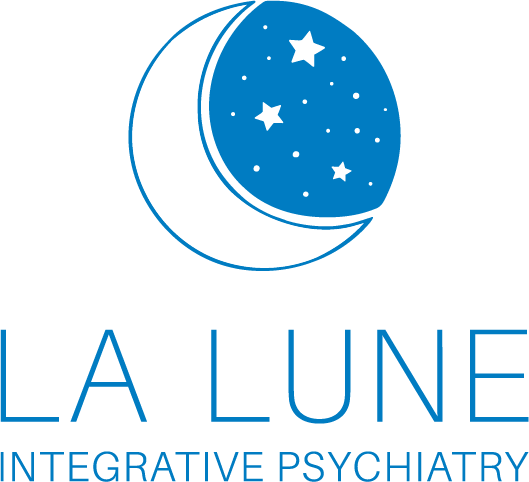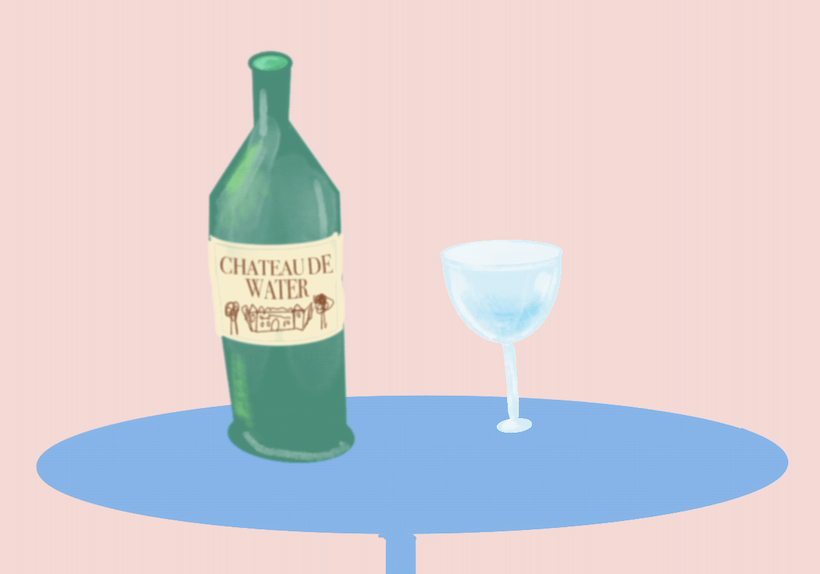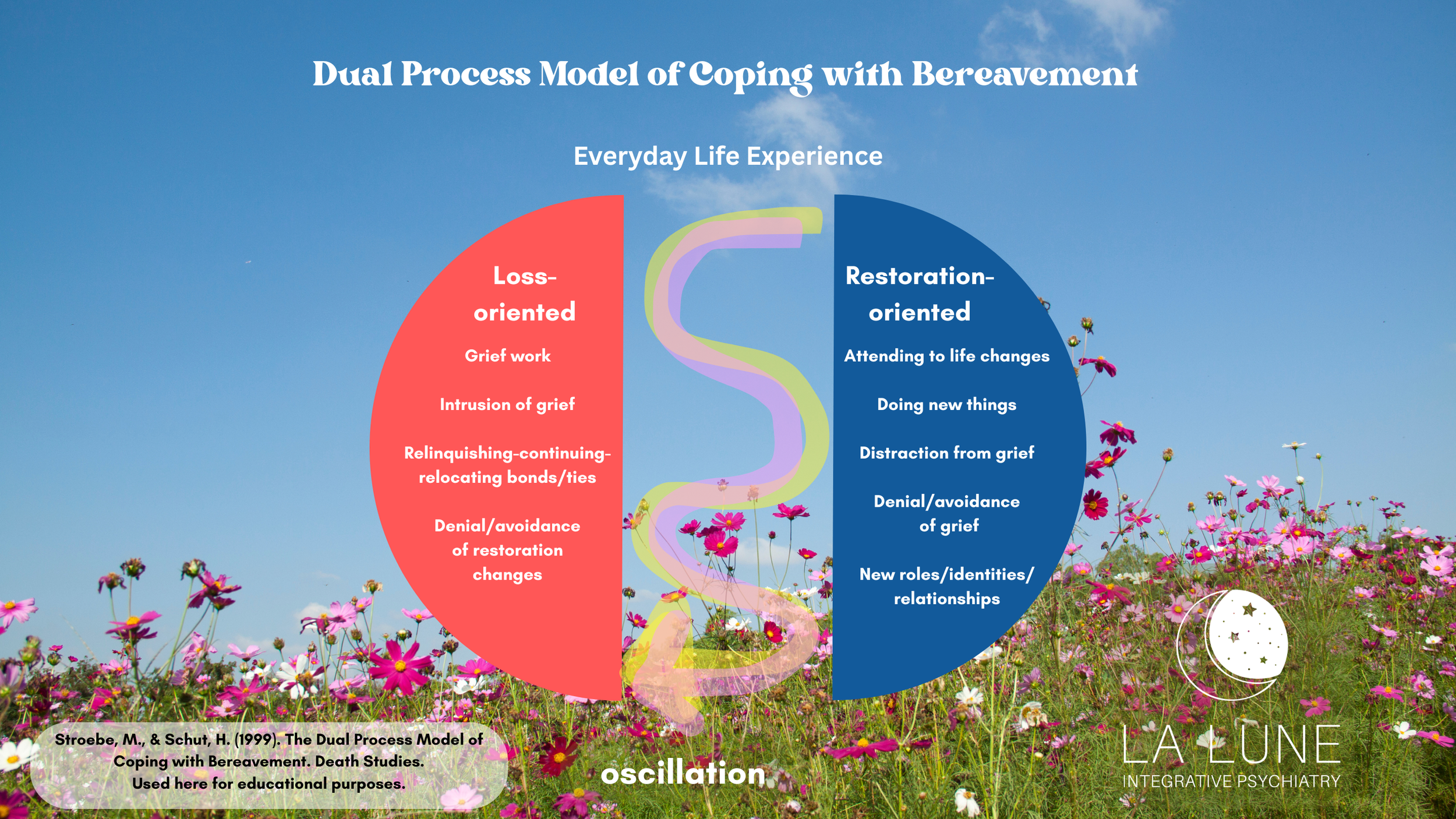Why Am I So Impulsive? Understanding Adult Impulsivity and How to Manage It
Acting before thinking—saying something you later regret, spending money you didn’t plan to, or making sudden decisions that don’t align with your long-term goals—can feel frustrating and confusing. Many adults struggle with impulsive behavior, often wondering why self-control seems harder at some times than others.
It’s a symptom connected to how the brain processes emotion, reward, and decision-making. For some adults, it shows up as part of ADHD, bipolar disorder, or the lingering effects of trauma. In other cases, impulsivity stems from difficulty with emotional regulation or distress tolerance, where acting quickly becomes a way to escape intense feelings.
At La Lune Integrative Psychiatry, we work with adults who want to understand these patterns and learn practical ways to regain control, without judgment, and with evidence-based care.
What is impulsive behavior?
Impulsive behavior means acting quickly without fully considering the potential outcomes. For adults, this can look like:
Making sudden purchases or financial decisions
Interrupting or oversharing in conversations
Engaging in risky or unplanned sexual encounters
Overeating or substance use in response to emotional stress
Quitting jobs, relationships, or commitments abruptly
These actions may bring temporary relief or stimulation but often lead to regret or self-criticism afterward.
What factors lead to impulsive behavior?
Impulsivity can have many influences, including emotional distress, trauma responses, environmental stress, or underlying mental health conditions such as ADHD or mood disorders. Neurologically, it may also relate to how the brain’s reward and regulation systems (including dopaminergic and serotonergic pathways and the prefrontal cortex) manage stress and self-control.
ADHD (Attention-Deficit/Hyperactivity Disorder):
Adults with ADHD may experience impulsivity as difficulty waiting, interrupting, blurting things out, or making quick decisions without weighing pros and cons. Impulsivity might show up as buying something online without thinking, changing plans suddenly, oversharing in conversation, or jumping into tasks before reading the directions.
Neurologically, this isn’t about laziness or a lack of willpower. ADHD affects the brain’s executive functioning system, which includes attention, planning, and impulse control. Differences in dopamine regulation and prefrontal cortex activity mean that the “pause button” isn’t always as available in the moment, especially when emotions or stimulation are high.
Bipolar Disorder:
During manic or hypomanic bipolar episodes, impulsive behavior can appear as overspending, risky behaviors, or rapid shifts in judgment. These behaviors don’t happen on their own with bipolar mood, often appearing alongside increased energy, racing thoughts, reduced need for sleep, or talking more quickly than usual. Some people swing into depression afterward, or experience a mixed state, where low mood and high energy happen at the same time. In those moments, impulsivity can be especially intense because the emotional discomfort is high and the energy to act on impulse is there.
Even outside of active mood episodes, emotional intensity and reward sensitivity may contribute to impulsivity.
Trauma and PTSD:
Trauma can shape impulsivity in more than one way. For some adults, especially those living with post-traumatic stress, the nervous system stays on alert. When emotions surge, impulsive reactions—snapping in anger, fleeing from discomfort, or making sudden decisions—can feel like the only way to regain safety. These may or may not be related to internal or external triggers, but took form after a traumatic event or period of time.
For others who’ve lived through chronic or early adversity, research shows that the opposite may happen: the body’s stress response becomes muted. Instead of feeling “too much,” they may feel too little—disconnected, flat, or numb. In those moments, impulsive behaviors can become a way to break through the numbness or feel briefly in control. Both patterns reflect the nervous system’s attempt to cope with overwhelm, and both can improve with care that rebuilds a sense of regulation and safety over time.
Anxiety:
Anxiety can also play a role in impulsivity. While many people associate anxiety with hesitation or avoidance, for some adults—particularly those with poor emotional regulation—high anxiety can trigger rash acts as a form of escape, distraction, or relief.
In these instances, impulsive behavior can be an attempt to relieve anxiety when distress tolerance is low. For example:
someone with generalized anxiety disorder (GAD) might send a text they regret just to ease uncertainty
someone with panic disorder might abruptly leave work or a meeting as soon as their body sensations spike
someone with OCD might impulsively perform a compulsion before thinking, just to stop the anxiety
In short: anxiety doesn’t always look like “freeze” or “avoid” — for many, it shows up as “act first, think later.”
Additional factors:
In some cases, impulsivity can also occur alongside substance use or certain personality traits that affect emotional regulation. Stress, fatigue, and unmet physical health needs can further reduce impulse control.
How to control impulsive behavior
Managing impulsivity begins with awareness, by noticing urges before they translate into action and building tools that strengthen emotional regulation and executive control.
1. Pause and notice the urge.
Before reacting, practice the mindfulness skill of “urge surfing.” When you feel the impulse rising, name it (“I feel the urge to buy something” or “I want to interrupt”). Even a few seconds of awareness can interrupt the automatic loop.
2. Delay and distract.
Give yourself time between impulse and action. Set a five-minute timer, take deep breaths, and step away from the trigger. Often, the intensity of the urge decreases once you create space.
3. Identify your triggers.
Before we decide how we are going to respond, we need to understand what our triggers and vulnerabilities are. Sometimes the trigger is external, and sometimes they are internal. Internal vulnerabilities can be emotional, physical, or cognitive. Our emotions are sometimes signals for an unmet need or boundary we might need. If we haven’t had enough sleep, it can be hard to pause between the impulse and action. Cognitive patterns of thinking can be triggers too, and may require a lot of intention. Sometimes guidance from a mental health professional can be helpful.
4. Use structured strategies.
Structured therapy can put a name to the thought or behavioral pattern behind these impulses or help identify and understand the core cause so you can move forward. You can also learn lifelong skills to cope with distress and increase resilience, which can lead to less impulsive behaviors. Examples of therapy modalities that can address impulsivity include:
Cognitive Behavioral Therapy (CBT) helps identify and change thought patterns that drive impulsive choices.
Dialectical Behavior Therapy (DBT) teaches mindfulness, emotional regulation, and distress-tolerance skills.
Trauma-focused therapies can address the emotional roots of reactivity.
5. Possible medication support.
If impulsivity is linked to certain conditions such as ADHD, bipolar disorder, or certain trauma-related mood instability, medications can possibly help. At La Lune Integrative Psychiatry, treatment plans combine medication management with therapy and lifestyle interventions to support long-term self-control.
When to seek professional help
Everyone acts impulsively sometimes. But when these behaviors affect relationships, finances, work, or safety, professional support can make a meaningful difference.
Integrative psychiatry looks at the full picture: biological, psychological, and environmental. Our providers consider sleep, nutrition, stress, and relationship dynamics alongside clinical factors. By addressing the root causes of impulsivity, treatment moves beyond “willpower” toward sustainable regulation and self-trust.
FAQ: Impulsive behavior
What is an example of impulsive behavior in adults?
Examples include overspending, interrupting others, binge eating, or acting on strong emotions without reflection.
Is impulsivity always a symptom of ADHD?
Not necessarily. While impulsivity is common in ADHD, it can also show up when people are anxious, overtired, under stress, or navigating mood changes related to bipolar disorder or trauma.
Even as a core diagnostic feature of ADHD, it’s also seen in several other conditions, including bipolar disorder, trauma-related stress, and certain anxiety disorders. That’s why a thorough evaluation is important before assuming ADHD is the cause.
Can trauma make you impulsive?
Yes. Trauma can disrupt how the nervous system responds to stress, leading to different kinds of impulsivity. Some people react quickly when emotions surge, trying to escape fear or discomfort. Others, especially those who’ve experienced chronic or early trauma, may feel emotionally numb and act impulsively to feel something or regain control.
What medications help with impulsive behavior?
Medication can often help when impulsivity is linked to a specific underlying condition. For example, ADHD medications like atomoxetine or guanfacine can improve attention and impulse control, while mood stabilizers or certain antidepressants can reduce impulsivity related to bipolar disorder or trauma. The best approach depends on the cause, and is often combined with therapy to build long-term regulation skills.
How can therapy help reduce impulsivity?
Therapy builds self-awareness, teaches mindfulness, and helps identify emotional triggers and cognitive patterns. Over time, these skills improve decision-making, interpersonal effectiveness, and self-control.
Modalities like CBT, DBT, and trauma-focused therapy can all support better impulse regulation.
Learn to manage impulsive behavior with La Lune Integrative Psychiatry
At La Lune Integrative Psychiatry, we go beyond symptom management to help adults understand what drives impulsive behaviors. Whether connected to ADHD, bipolar disorder, trauma, or something else, we create personalized treatment plans that integrate therapy, medication, and lifestyle care.
Reach out to La Lune Integrative Psychiatry to schedule your evaluation today.
Disclaimer: This website does not provide medical advice and may be out of date. The information, including but not limited to text, PDFs, graphics, images, and other material contained on this website are for general educational purposes only. No material on this site is intended to be a substitute for professional medical advice, diagnosis, or treatment, and does not create a patient-doctor relationship. Always seek the advice of your qualified healthcare provider with any questions you may have regarding a medical condition, lifestyle or dietary changes, treatments, and before undertaking a new health care regimen. Never disregard professional medical advice or delay in seeking it because of something you have read on this website.














